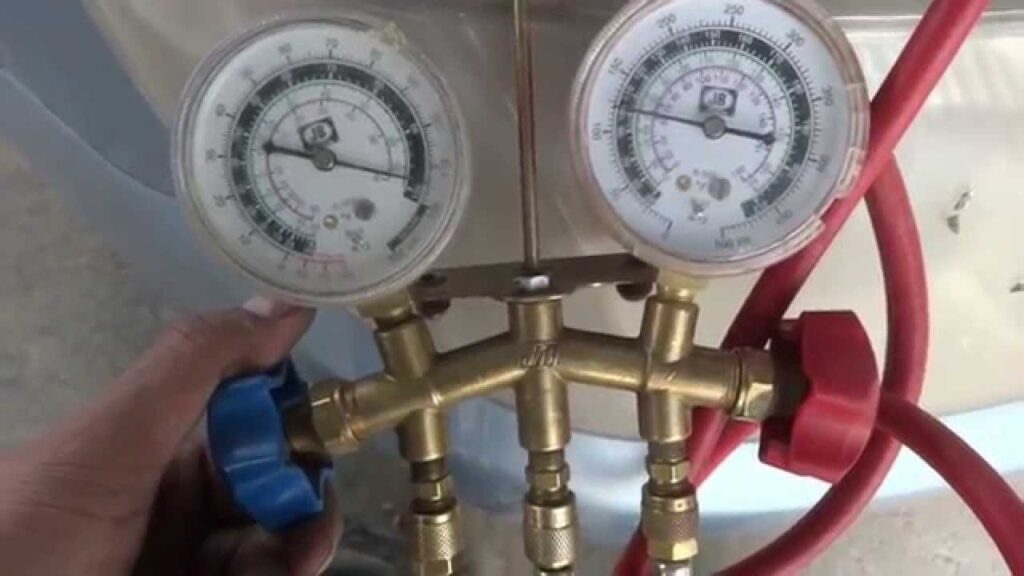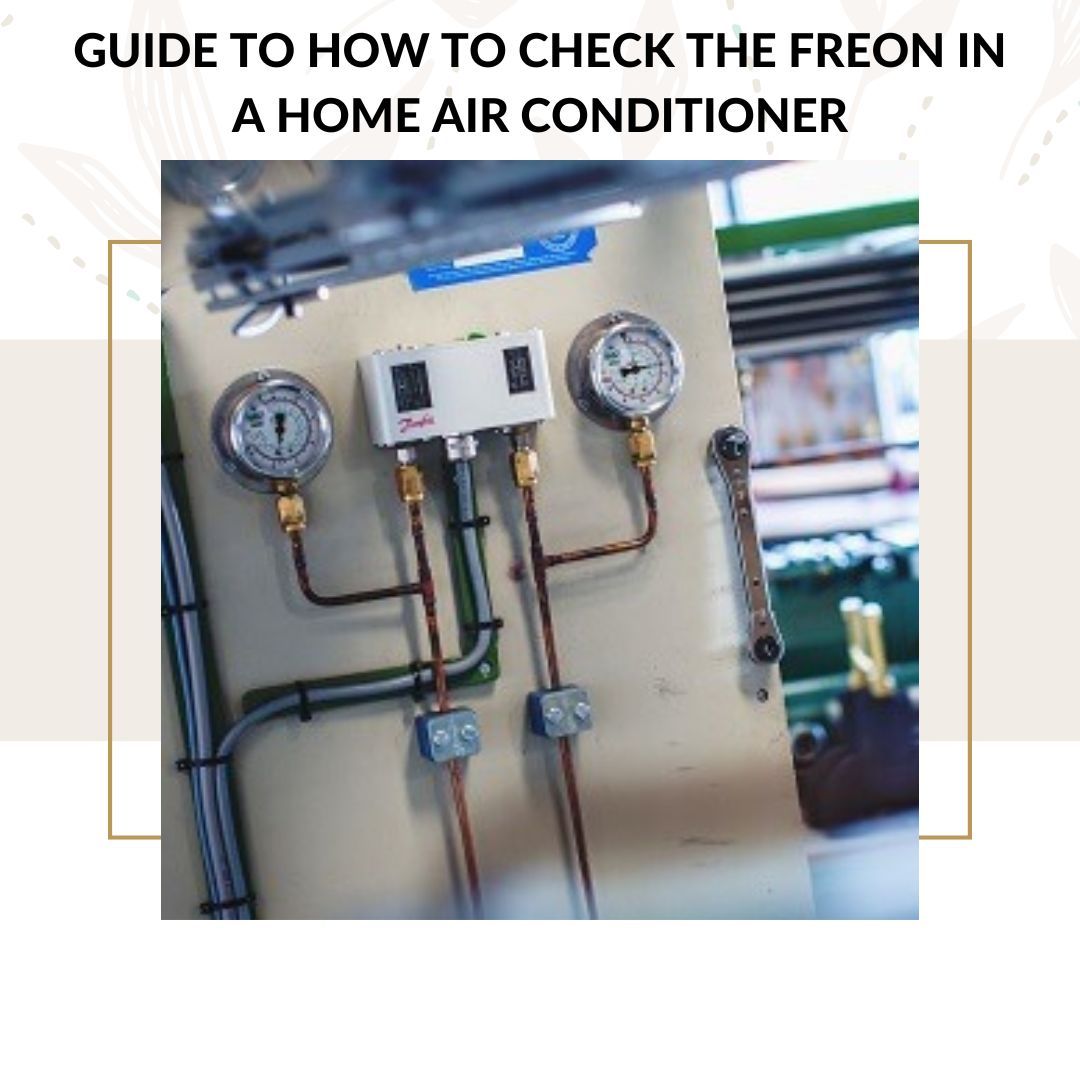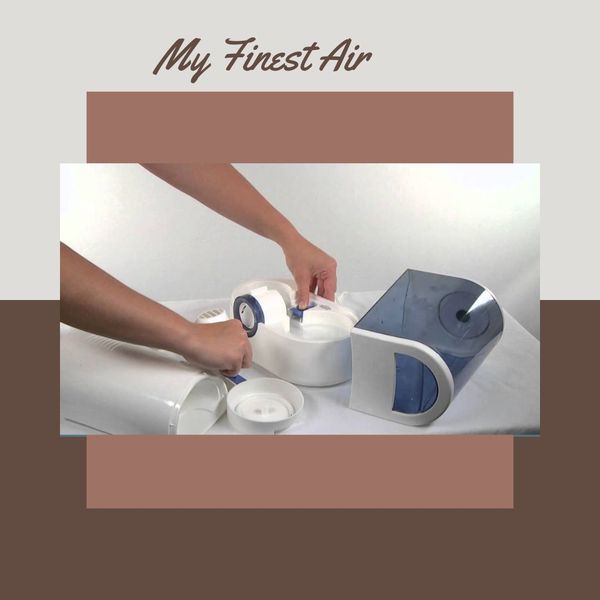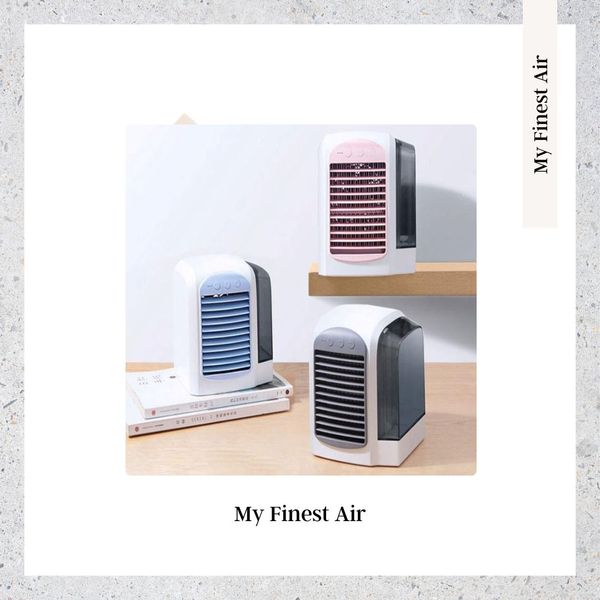Many homeowners also ignore checking the Freon levels of their AC units. Knowing the method to check the Freon levels in your AC unit and what repairs should be made accordingly can bring you comfort on your summer night.
This will save you time and money as you can determine the issue on your own. This guide will be telling you what Freon is and how to check the freon in the home air conditioner.
What is Freon?
For the air conditioner to perform correctly and cool the air efficiently, it needs a coolant or refrigerant, which will cool the air present in your AC unit.
Freon is very critical to any air conditioner’s performance.
But any issues with it should not be dealt with on your own – as it is a chlorofluorocarbon (CFC). CFCs are linked to the depletion of the ozone layer, which is very toxic.
Breathing in high concentrations of Freon can cause respiratory issues and build up fluid in the lungs and other organs, damaging them eventually.
Freon is being phased out of use in most air conditioning units and should be handled only by professionals.
However, there are many safe ways to check the levels of Freon in your unit and also ensure that the refrigerant is causing problems with the AC unit.
You can also visit: Do You Need A Humidifier With An Oxygen Concentrator?
Symptoms of low freon in central air conditioner
You have to be very confident that your AC unit needs a Freon refill, as there may be other issues with the unit as well as causing problems with its performance.
All these issues must be ruled out before going for a refill. A few signs can be looked out for, which indicate that your AC is low on Freon.
Blowing Warm Air
When your AC is low on freon, it starts blowing warm air instead of cold. This can be detected very easily by simply placing your hand in front of the cent and determining the air temperature.
You can also tell that your AC is blowing out warm air if it has been running the entire day, but the space still feels warm.
See Also: Honeywell Humidifier Not Working - Major Issues & Solutions
Hissing Noise
Small leaks do not give out any noise, but significant leaks do. This sound will typically sound like a bubbling or hissing sound. If you hear such a sound, there is most probably a Freon leak.
This leak must be repaired before recharging the Freon in the unit; if not done so, the problem will most likely return in a short while due to the leakage.
High Electric Bills
If you are receiving higher amounts of electric bills than usual or if you are running the AC constantly, the Freon must be refilled as the unit is consuming more power than usual.
If the unit’s performance were normal, there wouldn’t be a need to run it continuously.
Ice forming
If you notice ice forming on the outside unit of your AC along the refrigerant lines, it also indicates the need for Freon recharge.
Due to low refrigerant, moisture present on the outside of your AC unit will freeze and build alongside the refrigerant.
Check Freon Levels: Low levels of Freon
There are different ways to check your AC unit’s Freon levels yourself. The following are the tests:

Test for Sound
If your AC is giving out a bubbling or hissing sound, it indicates that your Freon levels are low.
The source of sound can be determined by listening to all the possible points along the line. You will again only hear such sound in case of a substantial leak.
Test with Soap
This method to check a leak in your AC is one of the oldest ones most reliable ones.
All you need is a mixture of soap and water and apply it where there is a susceptibility of a leak. The mixture will bubble up if the coolant is escaping from that point. This is a very reliable method but still works only where the leak is substantial.
If it is very small or insignificant, no bubbling will be noticed.
Electronic Detection
You may purchase a sniffer, which is an electronic detector that checks for leaks in the AC unit.
There are many different models of such sniffers available, but you must keep in mind that they are not completely reliable methods to detect leaks.
There are a few other ways to check the performance of your air conditioner, which do not involve any Freon. These include:
Filter
Any air conditioning unit’s air filter can become clogged easily. It must be ensured that it is clean and without any blockage.
A good cleaning of the air filter can bring your AC back to the proper operations most of the time.
Fan
Going about a quick inspection of the fan is very easy to do. You can turn on the AC and have a look at the fan.
You must make sure that the fan is starting automatically; if it doesn’t, there is an issue with its motor for sure.
If none of the maintenance measures mentioned above help you with the low Freon level or help you unveil the actual issue, there are high chances that you now need to refill the Freon.
If you are not confident about inspecting the Freon level of your unit or you think that a more in-depth evaluation is needed, it is recommended to reach out to a professional service.
Now that you have an idea of how to check the freon in a home air conditioner, you can go ahead and check what is wrong with your unit and get it fixed on your own, or in the worst case, call in professional help!
Related:








